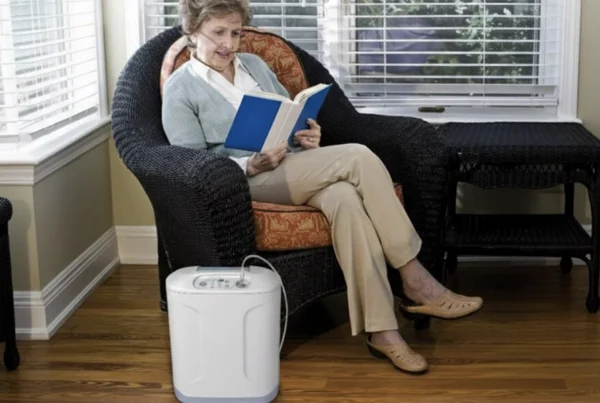Medical technology or MedTech is transforming medicine and healthcare, allowing professionals to make life-changing advances in diagnosing and treatment. The government has invested £277 million to help fund and advance life science projects in both medical diagnostics and human medicines and it has allowed medical care to be revolutionised.
Electrophysiological Amplifiers & Stimulators can be for research & clinical use. Companies such as Digitimer – a provider of science and research devices offer solutions for a wide range of applications.
But what is MedTech and how exactly is it changing the face of healthcare? Here is how medical technology is evolving every day:
What is MedTech?
Shorthand for medical technology, MedTech is a term used to refer to high-tech modern solutions like artificial intelligence systems and robotics that are used by healthcare practitioners around the world. It includes devices ranging from thermometers, catheters, and wheelchairs to complex MRI scan machines, CT scanners, and laser machines.
All this has been possible due to the development of the common stethoscope – a device that revolutionised medical tools and equipment for its time.
Medical imagining
Advanced MedTech imaging technologies allow the production of detailed images of the body, allowing medical personnel to see further than ever before. Imaging machines like X-rays use PCB design software to diagnose and treat injuries and diseases without being invasive. Primarily used in the cardiovascular field and high-tech machineries like MRIs and pacemakers.
Alongside imaging and implantable technologies, clinicians rely on precision interventional tools to translate visual information into safe action inside the body. In cardiovascular interventions, guide wires in particular provide the steerable support needed to reach lesions, cross tortuous anatomy and deliver devices such as stents. Understanding the specifications and materials behind these components helps teams choose the right tool for a given procedure; manufacturers catalogue such parts under specialised categories like Medical Devices for cardiovascular guide‑wire components. Better‑matched components can reduce procedure time and may lower complication rates, complementing advances in imaging and device design.
Recent innovations include the use of medical imaging to create customised implants and prosthetics.
Wearable devices
Wearable medical devices are another area where MedTech is making leaps and bounds. These are electronic devices worn by individuals to detect and track vital health information when worn. This can include anything from pacemakers and insulin pumps to smartwatches. Advanced connectivity solutions, such as NRF54L15, help enable seamless data transmission in these devices, ensuring real-time monitoring and improved patient care. With continuous advancements in sensor technology and AI-driven analytics, these devices are becoming even more precise, proactive, and personalized in managing health conditions.
While these advancements offer incredible benefits, they also introduce complex security challenges. The sensitive nature of health data and the direct impact on patient safety make these devices prime targets for cyber threats. Ensuring the integrity and privacy of information transmitted by these critical tools requires robust medical device cybersecurity measures. This includes everything from secure-by-design principles during development to continuous monitoring and compliance with evolving regulatory standards. Proactive security strategies are essential to protect both patient trust and the functionality of life-saving MedTech innovations.
Around 50,000 people are fitted with a pacemaker in the UK each year and directly benefit from the innovations of wearable medical devices. Not only can they improve people’s quality of life, but they can also help with the modification of treatment strategies.
Data analysis
MedTech has been changing the game in terms of improving treatment plans and outcomes by supplying medical practitioners with detailed information on patient health. This allows professionals to forecast the likelihood of specific diseases and provide early intervention. For example, healthcare professionals are increasingly supported by technologies developed by groups like Neural Cloud Solutions, whose AI-powered systems can process and interpret complex medical data with greater clarity and precision. By reducing uncertainty, these technologies can improve both the efficiency and accuracy of patient care.
It also means individuals can be identified early for susceptibility to complications and the likelihood of readmission. This not only contributes to lower healthcare costs but can enhance productivity and performance by defining vision and strategy.
Electronic health records
No longer do organisations like the NHS need to rely on poorly integrated filing systems. MedTech has allowed the development of electronic health records that allow all patient information and files to be consolidated and safely stored in the right place. This allows for more efficiency and speed to facilitate patient care.







